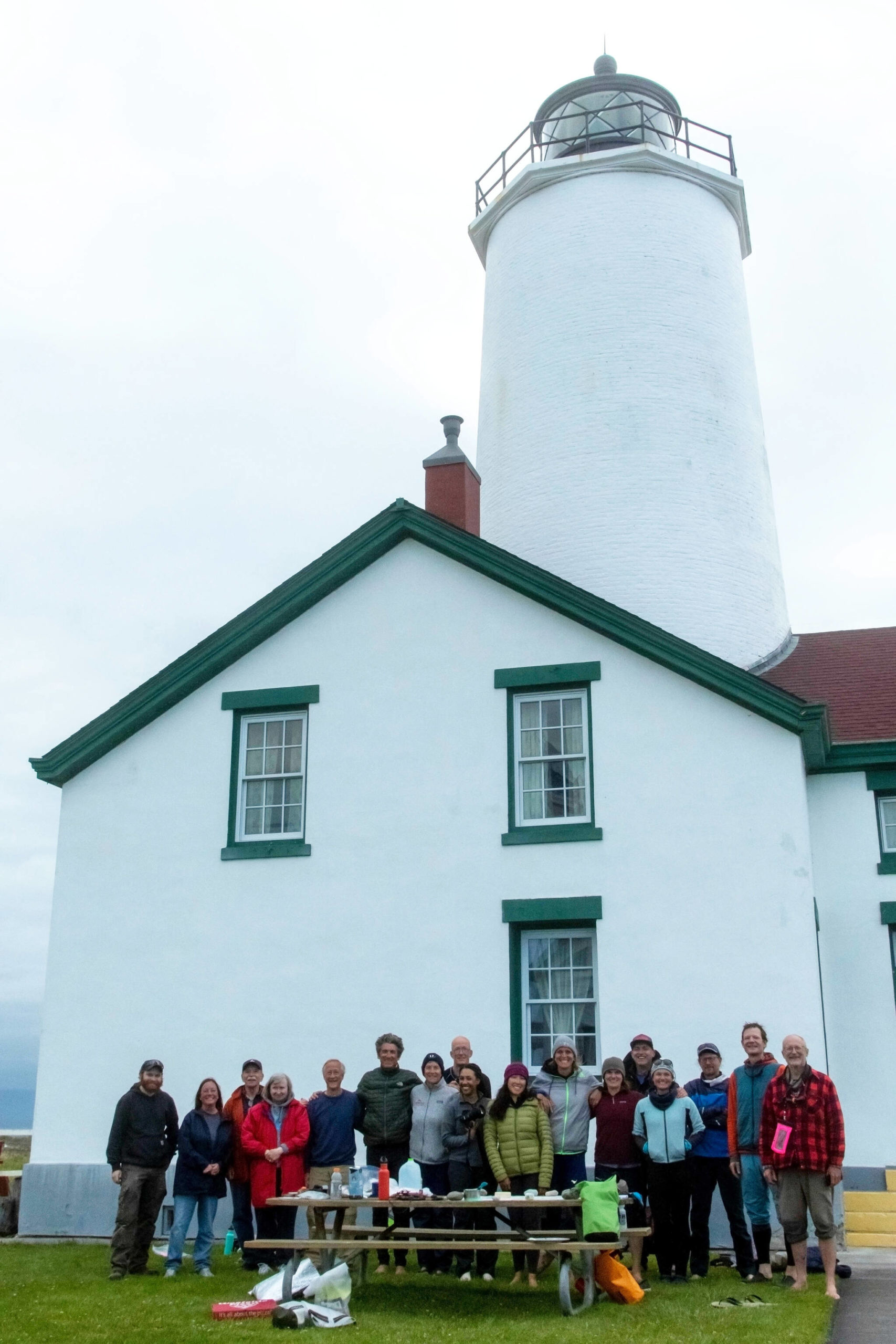When did Carling Zeeman know she and her teammate Michelle Choy might be in a bit of trouble? Probably when she started throwing up.
“We started at 5 a.m. and I was OK for a couple of hours, but the swells … ” said Zeeman, a Canadian two-time Olympian in the women’s single sculls.
“It’s my first time in rough ocean water.”
Rough weather thwarted a number of competitors in the 2022 Race to Alaska — a 750-mile sea journey billed as “North America’s longest human and wind powered race” featuring sailing boats, kayaks and rowing boats — forcing at least eight individuals to divert their Port Townsend-to-Victoria B.C. journey to a stop at the New Dungeness Lighthouse.
While many competitors were forced to seek shelter, either at the lighthouse or on Protection Island, several of the race’s competitors never got beyond the first day (June 13) when three boats capsized and one lost its mast.
And while 20 teams successfully navigated the 40 miles across the Strait of Juan de Fuca for the 40-ish mile first leg, Choy, Zeeman and others who hunkered down at the iconic Sequim light station were in good spirits — even more so after lighthouse keepers delivered pizza and muffins for lunch on Tuesday, June 14.
“Around Protection Island, the wind picked up quite a bit,” said Choy, a San Francisco, Calif. native. Choy and Zeeman, in a 22-foot Merry Sea rowboat under the moniker Team Let’s Row Maybe, managed to avoid anything worse than a delay, and race organizers gave teams an extra day-plus with the U.S. Coast Guard issuing a weather advisory until Wednesday morning.
The race’s first leg, about 40 miles, should have taken about seven or eight hours for Team Let’s Row Maybe, Zeeman said.
“As soon as you land, you think, ‘That was a bit dramatic’,” she said. “[But] it was the best case scenario for our situation.”
Chad Kaiser, general manager of the New Dungeness Light Station Association since 2011, said it was fortunate that there were a number of experienced keepers on hand to assist and look after the stranded racers. (The New Dungeness Light Station Association runs the Keeper Program in which members become keepers for a week while their fees help to maintain the Light Station; see newdungenesslighthouse.com)
“They’ve been great,” Zeeman said about the keepers on hand to welcome the racers. “We’re not allowed to camp her but there was nothing we could do.”
Keepers said the R2AK athletes were in good spirits — some seeming enthused about the chance to sleep overnight in a working lighthouse — but also ready to get back into their boats and get racing once more.
By Wednesday, June 15, teams had left the Dungeness Spit and arrived in Victoria, B.C.
As of Sunday, June 19, more wild weather and illnesses had knocked out three more teams, leaving 26 of the original 38 competitors still angling to complete the race that ends in Ketchikan, Alaska.
The R2AK returned to competition after a two-year COVID hiatus. The winning team gets $10,000 nailed to a post while the second-place team races for a set of steak knives.
This year’s race includes Quilcene native Lillian Kuehl, a R2AK competitor for a second time who built the 18-foot rowboat she will race the 750 miles from Port Townsend to Ketchikan in her Port Angeles living room.
Read more about the event at r2ak.com, and track each team at r2ak2022.maprogress.com.



